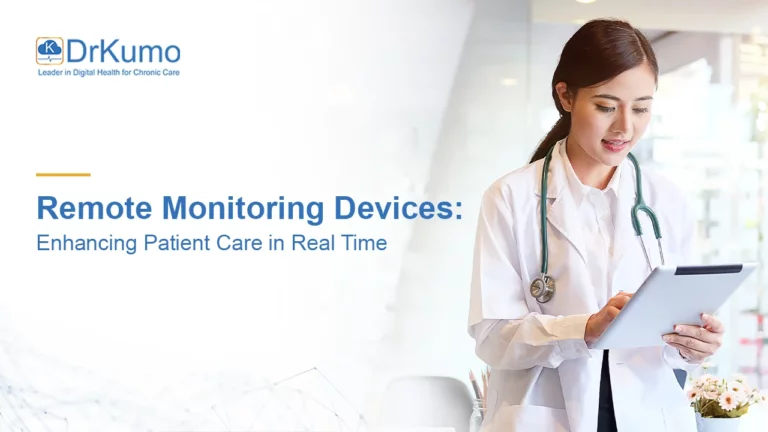The opioid epidemic in the United States has become a major public health crisis in recent years. According to the Centers for Disease Control and Prevention (CDC), over 130 people die every day from opioid overdose. The opioid crisis has been driven by the over-prescription and misuse of prescription opioids, as well as the rise of illicit opioids such as fentanyl.
Opioid use not only affects physical health but also mental health. The use of opioids can lead to the development of opioid use disorder, which is associated with a higher risk of mental health disorders such as depression and anxiety. Additionally, individuals who are struggling with opioid addiction may also be more likely to experience co-occurring mental health issues.
In the face of this crisis, there is a growing need for effective solutions to address both the physical and mental health effects of opioid addiction. One potential solution is remote patient monitoring, which uses technology to remotely monitor patients’ health status and provide support for recovery and wellness.
This article will explore the connection between opioid addiction and mental health, the impact of the opioid epidemic on adults with mental health disorders, and the significance of remote patient monitoring in supporting recovery and wellness of individuals struggling with opioid addiction and mental health disorders.
The Connection Between Opioid Addiction and Mental Health
Opioid use can lead to the development of opioid use disorder, a condition characterized by a compulsive use of opioids despite negative consequences. The use of opioids can also lead to withdrawal symptoms such as anxiety, depression, and irritability.
Studies have shown that individuals with opioid use disorder are more likely to experience mental health disorders such as depression and anxiety. This is likely due to the effects of opioids on the brain, which can disrupt the balance of neurotransmitters and lead to changes in mood and behavior.
The relationship between opioid addiction and mental health is complex and bidirectional. Individuals with pre-existing mental health disorders may be more likely to use opioids as a way to cope with their symptoms, which can then lead to the development of opioid addiction. On the other hand, opioid use disorder can also exacerbate pre-existing mental health conditions and create new ones.
The co-occurrence of opioid use disorder and mental health disorders is referred to as a dual diagnosis, and it presents a unique set of challenges in terms of diagnosis, treatment, and recovery.
It’s important to note that mental health conditions can also lead to chronic pain, which can be treated with opioid medication, and this in turn can lead to a higher risk of opioid use disorder.
The Impact of the Opioid Epidemic on Adults with Mental Health Disorders
The opioid epidemic has had a significant impact on adults with mental health disorders in the United States. Studies have shown that adults with mental health disorders are more likely to use opioids, and are at a higher risk for opioid use disorders and overdose.
Adults with mental health disorders are more likely to use prescription opioids, which can lead to addiction and overdose. They are also more likely to be prescribed high doses of opioids for longer periods of time, increasing the risk of addiction and overdose.
The opioid epidemic has also had a negative impact on access to mental health treatment for adults with mental health disorders. The high rates of opioid use and overdose have placed a strain on the healthcare system, leading to limited resources for mental health treatment.
Individuals with co-occurring opioid use disorder and mental health disorders may have difficulty accessing appropriate treatment. Mental health providers may not have the necessary training and resources to treat opioid addiction; and addiction treatment providers may not have the necessary training and resources to treat mental health disorders.
The opioid epidemic has also led to an increase in overdose deaths among adults with mental health disorders, highlighting the urgent need for effective treatment and support for this population.
Remote Patient Monitoring as a Solution
Remote patient monitoring (RPM) is a technology-based approach to healthcare that allows patients to be monitored remotely, outside of a traditional clinical setting. RPM can support the recovery and wellness of adults with opioid use disorder and mental health disorders by providing real-time monitoring of vital signs, symptom management, and medication adherence.
RPM can also improve communication between patients, caregivers, and healthcare providers, allowing for more personalized treatment and support. Some examples of RPM include telehealth appointments, mobile health apps, and wearable devices that track vital signs and medication use. RPM can improve access to care for individuals living in rural or underserved areas, who may have difficulty accessing traditional in-person treatment.
RPM can also reduce the risk of overdose by allowing healthcare providers to monitor patients for signs of opioid withdrawal or overdose and intervene in a timely manner. RPM has the potential to improve outcomes for adults with opioid use disorder and mental health disorders by providing real-time monitoring and support, and improving access to care.
Revolutionizing Opioid Epidemic and Mental Health Management with DrKumo Remote Patient Monitoring Technology
The opioid epidemic and the association between mental health disorders and substance use are critical issues in healthcare. DrKumo, with its advanced remote patient monitoring technology, plays a significant role in addressing these challenges. DrKumo’s technology is specifically designed to monitor the health conditions of opioid users and provide healthcare providers with real-time intelligence for timely intervention.
DrKumo is a technology leader in remote patient monitoring solutions for Chronic Disease Management, Acute Care, Post-Operation, and Hospital Care At Home. DrKumo’s user-friendly platform is powered by state-of-the-art AI/ML technology, ensuring real-time monitoring and timely interventions. The platform is also HIPAA-compliant and mobile-enabled, making it accessible for patients to manage their health from the comfort of their homes.
With a culture that is innovative, collaborative, and technology-driven, DrKumo is revolutionizing the way people access quality healthcare. Our solutions provide effective results for both patients and healthcare providers. The technology can also identify patients who may be at risk for developing a substance use disorder or a mental health issue related to opioid use, providing healthcare providers with an early warning system for prevention and intervention.
Takeaways
The opioid epidemic has brought to light the significant association between substance use and mental health disorders. Individuals who struggle with severe pain and are prescribed opioids are at a higher risk of developing a substance use disorder, as well as other mental health conditions such as mood and stress disorders.
Furthermore, opioid abuse among individuals already struggling with mental health disorders can lead to a worsening of symptoms and a decrease in overall quality of life. It is crucial that healthcare providers take a holistic approach in treating patients with opioid prescriptions, taking into consideration the patient’s mental health status and potential for abuse.
Additionally, addressing the underlying mental health issues in individuals with opioid use disorder is essential for long-term recovery and improved overall well-being. It is important to continue researching the association between mental health disorders and opioid use in order to develop more effective treatment options.
Looking to use remote patient monitoring solutions to monitor opioid addiction and mental health disorders? Contact DrKumo now.








